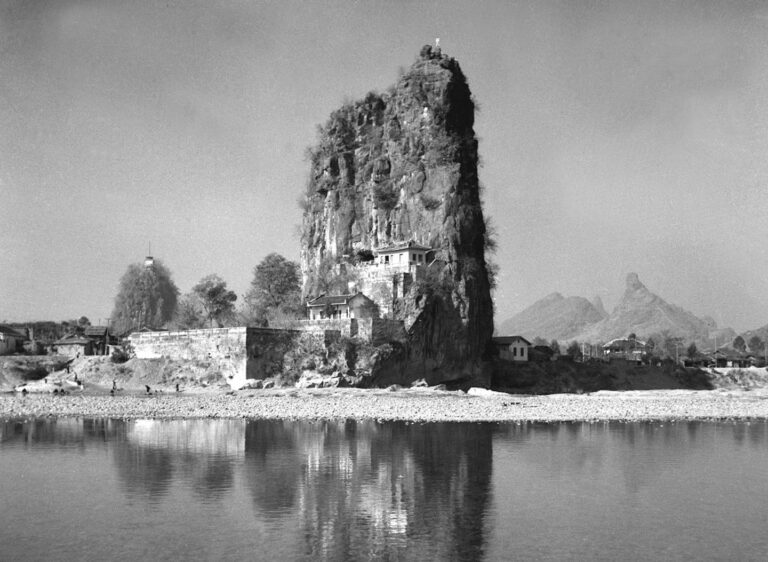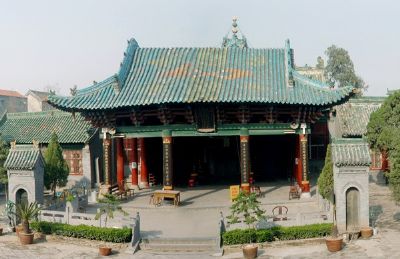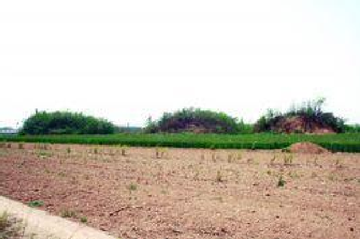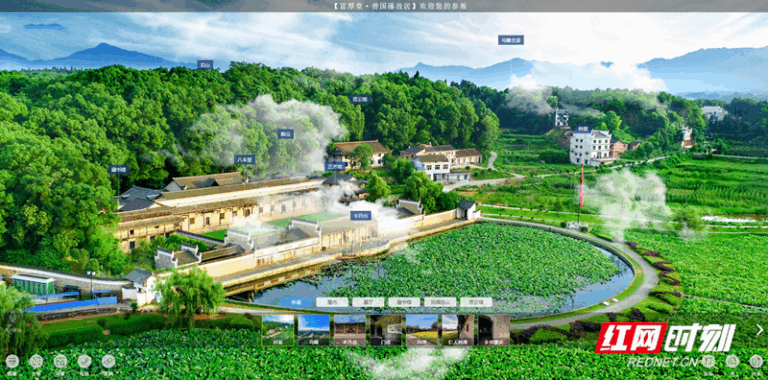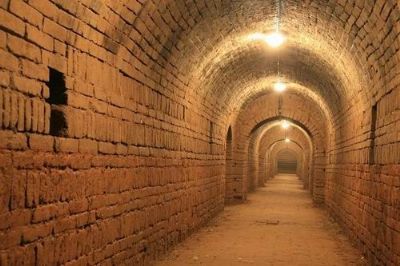A Cultural Expedition: Exploring Jingdezhen Yaoli Gaibian Jiuzhi’s Rich Ceramics Legacy
An Essential Guide to Visiting Jingdezhen Yaoli Gaibian Jiuzhi
In This Guide
- An Essential Guide to Visiting Jingdezhen Yaoli Gaibian Jiuzhi
- The Rich History of Jingdezhen Yaoli Gaibian Jiuzhi
- Main Highlights: What to See at Jingdezhen Yaoli Gaibian Jiuzhi
- Planning Your Visit: A Practical Guide
- Tickets, Hours, and Booking
- How to Get There
- Local Cuisine and Accommodation
- Frequently Asked Questions
- Final Thoughts on Your Trip
Nestled within the picturesque valleys of Jiangxi Province, the ancient town of Yaoli beckons travelers to explore its rich tapestry of history, culture, and natural beauty. Often overshadowed by its more famous neighbor, Jingdezhen—the renowned porcelain capital of China—Yaoli stands as a hidden gem, brimming with tales of craftsmanship, revolution, and tradition.
Founded during the Western Han Dynasty, Yaoli was originally known as “Yaoli” and established itself as a vital center for porcelain production during the Tang and Song dynasties. As centuries unfolded, this quaint town became a silent witness to the ebb and flow of China’s socio-economic tides. With its charming Ming and Qing architectural styles, winding cobblestone streets, and serene rivers, Yaoli invites visitors to step back in time and experience the essence of Jiangnan’s cultural heritage.
Among its many attractions, the historic sites of the Yaoli Restoration Headquarters—including the Hongyi Temple, Jingyi Hall, and the Cheng Clan Ancestral Hall—serve as poignant reminders of the town’s significance during the tumultuous years of the Chinese Civil War. These sites not only showcase exquisite architectural craftsmanship but also embody the spirit of resilience and unity that characterized the local community.
As you wander through Yaoli, the whispers of history echo around you, with each alley and building offering a glimpse into a bygone era. From its lush landscapes, adorned with rare flora, to its vibrant cultural experiences, Yaoli is a treasure trove waiting to be uncovered. Whether you’re a history enthusiast, a lover of architecture, or simply seeking a peaceful retreat, this enchanting town promises an unforgettable journey into the heart of China’s cultural legacy.
The Rich History of Jingdezhen Yaoli Gaibian Jiuzhi
Jingdezhen Yaoli Gaibian Jiuzhi, located in the picturesque Yaoli Ancient Town, boasts a rich tapestry of history that intertwines the evolution of porcelain craftsmanship and significant revolutionary events in China. This ancient town, which dates back over two millennia, was originally established during the late Western Han Dynasty and was initially known as “Yao Li,” a name derived from its origins as a center for kiln operations.
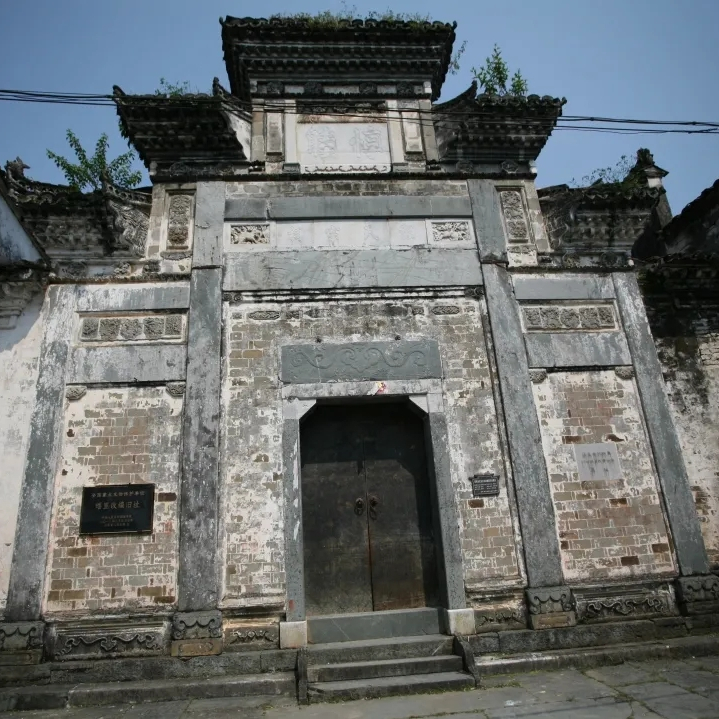
Jingdezhen Yaoli Gaibian Jiuzhi.
During the Tang Dynasty, Yaoli emerged as a pivotal hub for porcelain production, reaching its zenith in the Song Dynasty when it was home to more than 80 kilns. The region was revered for its superior quality porcelain clay and glazes, drawing artisans and merchants alike. However, as the porcelain industry centralized in nearby Jingdezhen, Yaoli’s prominence waned, leading to its eventual renaming in the late Qing Dynasty.
A notable transformation occurred in the late 1930s, amidst the backdrop of the Second Sino-Japanese War. In 1937, following the Marco Polo Bridge Incident, the local Red Army guerrilla forces were restructured into the New Fourth Army here in Yaoli. This transition, known as the “Yaoli Reorganization,” marked a crucial point in China’s revolutionary history. The area became a base for the Communist Party, facilitating military and logistical operations against Japanese forces. The memorials and historical sites scattered throughout Yaoli, such as the Hongyi Shrine and the Jingyi Hall, commemorate this significant chapter.
Today, Yaoli preserves a multitude of ancient structures from the Ming and Qing Dynasties, showcasing traditional Huizhou architecture, which includes intricately carved wooden beams and elegant stone streets. The bustling Ming and Qing Commercial Street stands testament to the town’s once-thriving trade routes, reflecting the economic prosperity of the past.
Visitors to Yaoli can explore the Cheng Family Ancestral Hall, where historical gatherings and ancestral worship ceremonies were held, further immersing themselves in the town’s cultural heritage. The harmonious blend of natural beauty, historical significance, and revolutionary legacy makes Yaoli a compelling destination for those interested in China’s rich history and artistic traditions.
Main Highlights: What to See at Jingdezhen Yaoli Gaibian Jiuzhi
Jingdezhen Yaoli Gaibian Jiuzhi, a historical site in Yaoli Ancient Town, is a captivating destination that immerses visitors in rich cultural heritage and stunning natural beauty. This area is renowned for its deep-rooted ceramic culture, well-preserved Ming and Qing architecture, and historical significance.
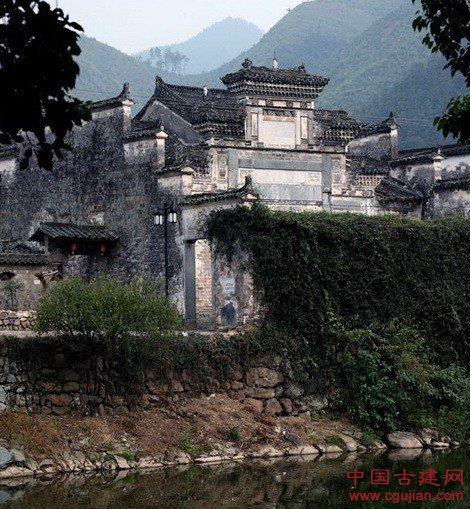
Jingdezhen Yaoli Gaibian Jiuzhi.
Historical Significance
Originally established during the late Western Han Dynasty, Yaoli Town was first known as “Yaoli.” By the Tang Dynasty, it had evolved into a major center for porcelain production, reaching its zenith during the Song Dynasty. As the ceramic industry began to shift towards Jingdezhen, Yaoli experienced a decline but has since been recognized as a significant cultural site, gaining the status of a national AAAA scenic area in 2005.
Architectural Wonders
Among the town’s architectural gems, the Cheng Clan Ancestral Hall stands out. This ancestral hall, also known as “Dunmu Hall,” was constructed in the mid-Ming Dynasty and reflects the cultural values of respect and harmony within the Cheng family. Visitors can explore the hall’s elegant design and learn about the traditional customs that have been preserved over generations.
Revolutionary Heritage
Yaoli is not only a celebration of porcelain and architecture; it is also a site of historical importance in the context of the Chinese Revolution. The Hongyi Shrine marks the location where the Red Army was reorganized into the New Fourth Army during the anti-Japanese war. The monument and memorial hall serve as poignant reminders of this period, attracting history enthusiasts eager to learn about the town’s role in China’s revolutionary past.
Natural Beauty
Surrounded by lush mountains and the meandering Yaohua River, the natural scenery adds to Yaoli’s charm. The ecological area near Wanghu Lake features breathtaking landscapes, complete with waterfalls and geological wonders, making it an ideal spot for nature lovers and photographers.
Traditional Commerce
The Ming and Qing Commercial Street is another highlight, presenting a well-preserved glimpse into the bustling trade routes of ancient Huizhou. Spanning over a kilometer, the street is lined with traditional shops that have retained their historic character, offering visitors a chance to experience the vibrant atmosphere of bygone eras.
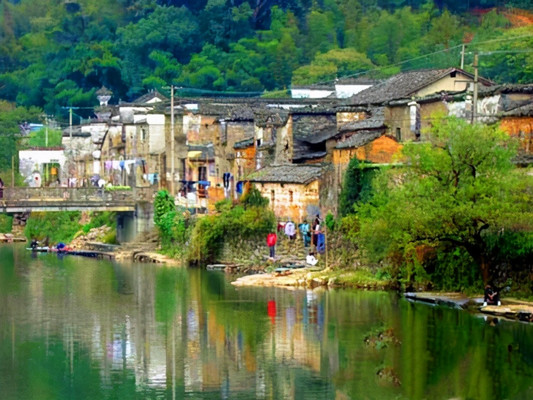
Jingdezhen Yaoli Gaibian Jiuzhi.
Cultural Experiences
Visitors to Yaoli can also engage with local traditions, from participating in ancestral worship ceremonies at the Cheng Clan Ancestral Hall to enjoying performances of traditional opera. These experiences provide a deeper understanding of the cultural fabric that defines this historic town.
Yaoli Ancient Town, with its blend of history, architecture, and natural splendor, offers a unique window into China’s rich cultural heritage, making it a must-visit destination for those exploring the region.
Planning Your Visit: A Practical Guide
Visiting Jingdezhen’s Yaoli Gaibian Jiuzhi provides a unique glimpse into China’s rich historical tapestry, particularly in the realm of ceramics and revolutionary history. This practical guide will help you navigate your trip to this charming ancient town, ensuring an enriching experience filled with cultural insights and stunning natural beauty.
Getting There
Yaoli Ancient Town is located in the eastern part of Jingdezhen City, Jiangxi Province, within the Fuliang County region. Travelling options include:
- By Train: High-speed trains from major cities like Nanchang or Hangzhou can take you to Jingdezhen in just a few hours. From there, local buses or taxis can connect you to Yaoli.
- By Car: Renting a car is a great option for those who want to explore the surrounding areas at their own pace. The drive from Jingdezhen to Yaoli typically takes about 30 minutes.
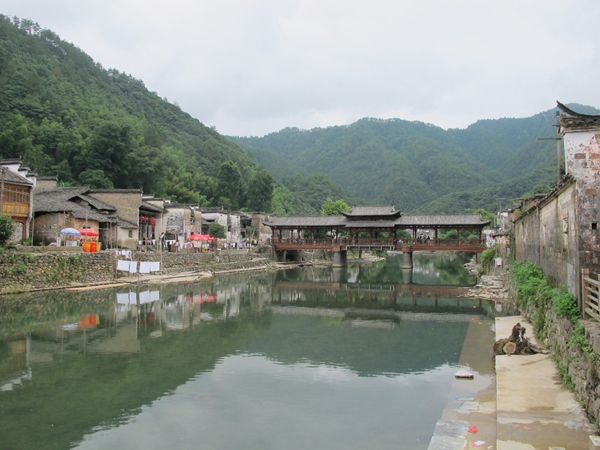
Jingdezhen Yaoli Gaibian Jiuzhi.
Best Time to Visit
The ideal time to visit Yaoli is during the spring (March to May) and autumn (September to November) months when the weather is mild, and the natural scenery is at its most captivating. Summer can be hot and humid, while winter may bring cold temperatures.
Accommodation
While Yaoli isn’t a bustling urban center, it offers a range of accommodations from boutique hotels to local guesthouses. Consider staying at:
- Local Guesthouses: These often provide a warm atmosphere and authentic local experiences. Look for places that highlight traditional architecture.
- Hotels in Jingdezhen: If you prefer more options, staying in Jingdezhen and making day trips to Yaoli is viable.

Jingdezhen Yaoli Gaibian Jiuzhi.
Key Attractions
Yaoli is rich in historical sites and natural beauty. Here are some must-see landmarks:
- Ming and Qing Commercial Street: This ancient street showcases well-preserved architecture and was once a bustling trade route. Stroll along and visit the quaint shops selling local handicrafts.
- Cheng Family Ancestral Hall: A cultural landmark where you can learn about the local lineage and traditions. The hall is a serene space that reflects the architectural style of the Ming Dynasty.
- Shigang Scenic Area: This site features a blend of Eastern and Western architectural styles, offering a unique perspective on local history.
- Yaoli River: The river winds through the town, creating picturesque views and opportunities for leisurely walks or photography.
Cultural Insights
Yaoli is not just about its beautiful landscapes; it also has a significant revolutionary history. The Yaoli Reorganization Memorial commemorates the restructuring of the Red Army during the Sino-Japanese War. This site provides an educational experience about the historical context of the area.
Local Cuisine
Don’t miss out on the culinary delights of Yaoli. Local eateries serve traditional dishes that reflect the region’s agricultural bounty. Some recommended dishes include:
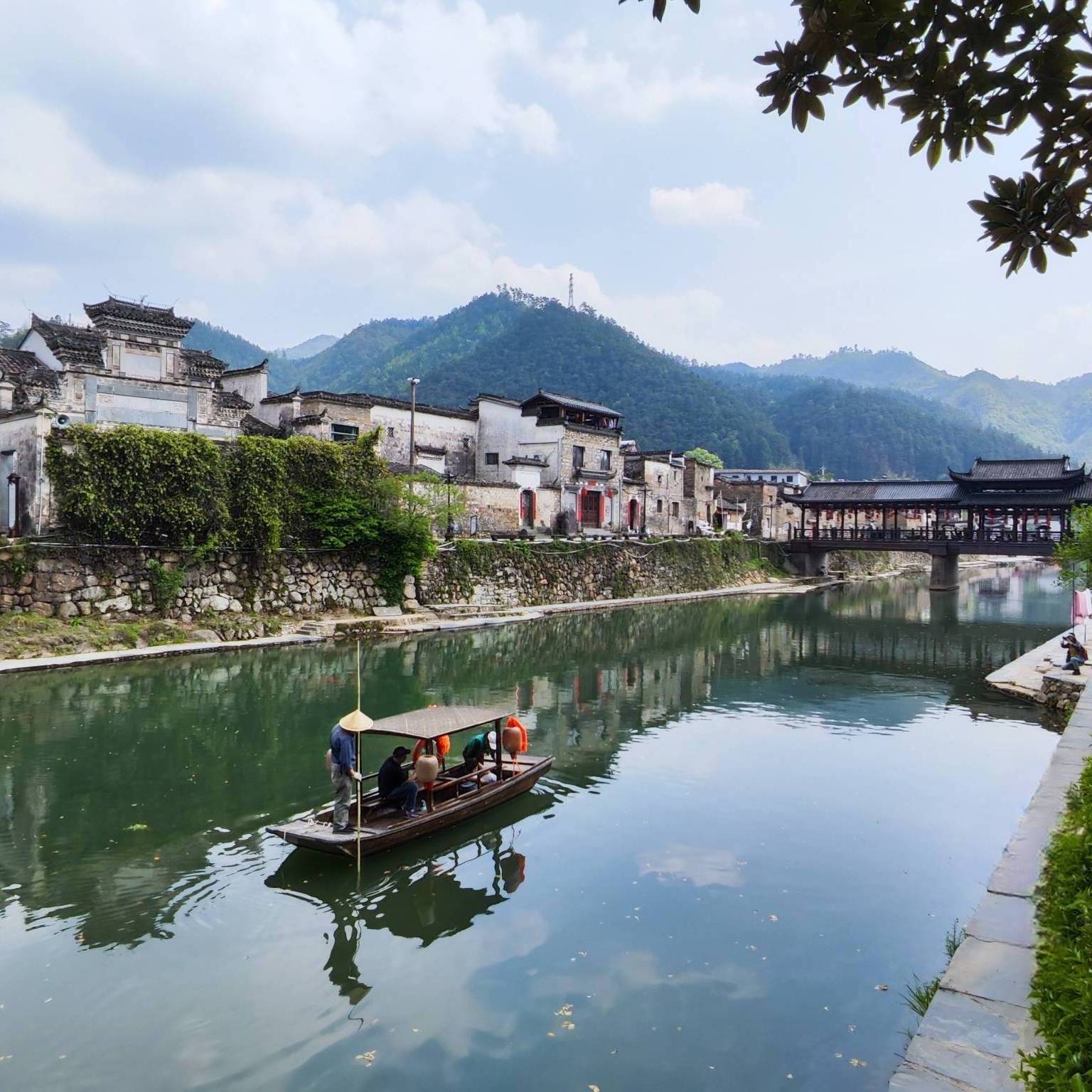
Jingdezhen Yaoli Gaibian Jiuzhi.
- Local River Fish: Freshly caught and often prepared with local herbs and spices.
- Hakka-style Dishes: Unique flavors typical of the Hakka community residing in the area.
Practical Tips
- Language: While some locals may speak basic English, it’s helpful to learn a few Mandarin phrases or use a translation app to enhance your communication.
- Currency: Ensure you have some cash on hand, as smaller vendors may not accept credit cards. ATMs are available in Jingdezhen but may be limited in Yaoli.
- Respect Local Customs: When visiting ancestral halls or participating in local ceremonies, be mindful of the cultural significance and follow local etiquette.
Conclusion
Yaoli Ancient Town is a hidden gem in China, offering a blend of stunning natural beauty, rich cultural heritage, and historical significance. By following this practical guide, you can ensure a memorable visit to this enchanting destination, uncovering the layers of history that shaped it into what it is today.
Tickets, Hours, and Booking
When planning your visit to the Jingdezhen Yaoli Gaibian Jiuzhi, it’s essential to know about ticketing options and any associated experiences. Here’s a comprehensive guide to help you navigate your entry to this historical site.

Jingdezhen Yaoli Gaibian Jiuzhi.
Ticket Information
Entry Fees:
– General Admission: Tickets to the Yaoli Ancient Town are typically priced around ¥60 (approximately $9), granting you access to the main attractions within the area, including the Ming-Qing Commercial Street and the Cheng Clan Ancestral Hall.
– Discounted Rates: Reduced prices may be available for students, seniors, and children. It’s advisable to carry valid identification to avail of these discounts.
Special Attractions:
– Cheng Clan Ancestral Hall: As part of your ticket, you can explore this beautifully preserved ancestral hall, which showcases the rich cultural heritage and history of the Cheng family. This site often hosts exhibitions that delve into the local customs and traditions.
– Guided Tours: For a more immersive experience, consider joining a guided tour. These usually range from ¥100 to ¥300 ($15 – $45), depending on the length and inclusivity of the tour, which may cover additional sites like the Hongyi Shrine and the historical significance of the area during the Chinese revolution.
Additional Experiences:
– Workshops: Engage in pottery-making workshops that reflect Jingdezhen’s famous ceramic traditions. Prices for these workshops can vary, starting around ¥200 ($30) per session, often including materials and instruction.
– Cultural Performances: Check if there are any scheduled performances or events during your visit. Tickets for special events can range between ¥50 to ¥150 ($7 – $22).
Purchasing Tickets
- Online Booking: It’s convenient to book your tickets online through platforms like Trip.com or local travel agencies. This ensures your entry on busy days and may include discounts.
- On-Site Purchase: Tickets can also be bought at the entrance of Yaoli Ancient Town. However, be prepared for potential queues, especially during peak tourist seasons.

Jingdezhen Yaoli Gaibian Jiuzhi.
Opening Hours
- Daily Access: The site is open year-round from 8:00 AM to 6:00 PM, allowing ample time to explore the scenic beauty and historical significance of the town.
Tips for Visitors
- Plan Ahead: Given the historical importance and picturesque scenery, consider visiting on weekdays to avoid the crowds.
- Dress Comfortably: Wear comfortable shoes, as the ancient streets are lined with cobblestones and require a bit of walking.
- Stay Hydrated: Bring water, especially during warmer months, as you’ll be exploring the outdoors.
By planning ahead and understanding the ticketing options available, you can ensure a memorable visit to the Jingdezhen Yaoli Gaibian Jiuzhi, steeped in history and culture.
How to Get There
Traveling to Jingdezhen Yaoli Gaibian Jiuzhi (瑶里改编旧址) is a rewarding experience, allowing visitors to immerse themselves in a rich cultural and historical landscape. The transportation options available will ensure a smooth journey to this scenic ancient town.
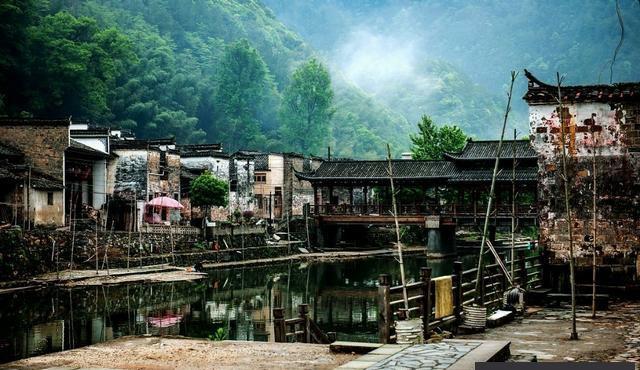
Jingdezhen Yaoli Gaibian Jiuzhi.
Getting There
By Train:
The most convenient way to reach Yaoli is by high-speed train. Jingdezhen is well-connected to major cities in China, including Beijing, Shanghai, and Guangzhou. Upon arriving at the Jingdezhen Railway Station, you can take a local bus or taxi to Yaoli, which is approximately 30 kilometers away. The train journey offers picturesque views of the countryside, making it a pleasant start to your adventure.
By Bus:
For those preferring a direct approach, buses run regularly from Jingdezhen to Yaoli. The bus ride takes about an hour, and tickets can be purchased at the Jingdezhen Bus Station. Ensure to check the schedule in advance, especially if you are traveling during peak seasons or public holidays.
By Car:
If you wish to explore the surrounding areas at your own pace, renting a car is a viable option. The roads leading to Yaoli are generally well-maintained, and driving allows you the flexibility to stop at various attractions along the way. Be sure to have a GPS or a reliable map, as navigation signs may not always be in English.
By Taxi or Ride-Sharing:
For a more comfortable and direct route, you can opt for a taxi or a ride-sharing service from Jingdezhen to Yaoli. This option might be more expensive than public transport but is ideal for groups or families traveling with luggage.
Local Transportation in Yaoli
Once in Yaoli, the town is easily navigable on foot. The picturesque streets, lined with ancient architecture and beautiful landscapes, invite leisurely exploration. There are also electric carts available for hire to transport visitors to key sites, especially for those who may have difficulty walking long distances.
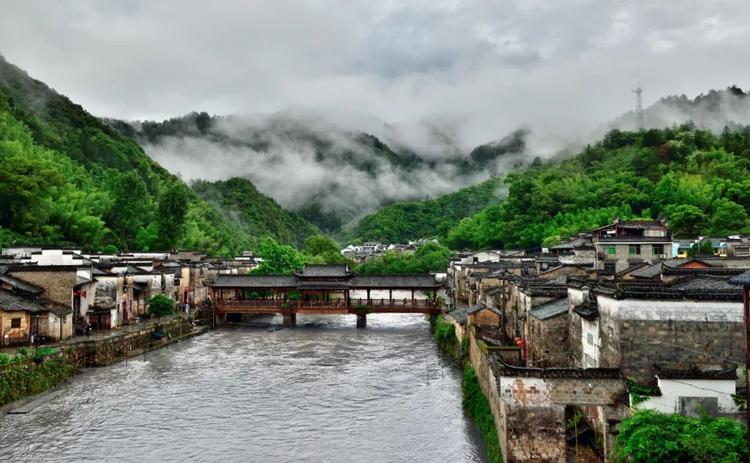
Jingdezhen Yaoli Gaibian Jiuzhi.
Bicycle Rentals:
For a more immersive experience, consider renting a bicycle. This allows you to enjoy the serene beauty of the surroundings at your leisure, and there are designated bike paths in some areas.
Guided Tours:
If you prefer a structured visit, guided tours are available. Local guides provide transportation, insights into the history and culture of Yaoli, and can tailor the experience to your interests.
Conclusion
With a variety of transportation options available, reaching Jingdezhen Yaoli Gaibian Jiuzhi is both convenient and enjoyable. Whether you choose to travel by train, bus, or car, you’re set for a remarkable journey into one of China’s historical gems.
Local Cuisine and Accommodation
When visiting the historic Yaoli ancient town, known for its rich ceramic culture and stunning natural scenery, you’ll find a delightful array of dining options and accommodations that cater to every taste and budget.
Dining Options
Yaoli offers a unique culinary experience, showcasing local flavors and traditional dishes. Here are some must-try restaurants:

Jingdezhen Yaoli Gaibian Jiuzhi.
-
Yao River Mountain Cuisine: This restaurant specializes in local delicacies, particularly dishes made with fresh ingredients sourced from the surrounding mountains. Guests rave about the seasonal vegetables and traditional stews.
-
One Day One Sweet: Perfect for those with a sweet tooth, this charming eatery offers a variety of desserts that highlight the region’s natural flavors. Be sure to try their handmade pastries and local fruit preserves.
-
Chongqing Chicken Pot (Zhu Ji’s Branch): A great spot for spicy food lovers. This restaurant serves up a mouthwatering hot pot experience, allowing you to cook various ingredients at your table in a rich, flavorful broth.
-
Farmhouse Dishes in Yaoli: This family-run establishment provides a cozy atmosphere and home-cooked meals. The menu features traditional dishes made with locally sourced ingredients, ensuring a taste of authentic Yaoli cuisine.
-
Yao Li Ancient Town Folk Restaurant: Known for its rustic charm, this restaurant offers a selection of local dishes and is particularly famous for its fresh fish from the Yao River. The ambiance is enhanced by traditional decor that reflects the town’s history.
Accommodations
For a restful stay, Yaoli has a range of accommodations that blend comfort with local charm:
-
Xiyou Ceramic Art Inn: This boutique hotel combines artistic elements with modern amenities. Each room is uniquely decorated, reflecting the region’s rich ceramic heritage. Guests can enjoy a tranquil setting with beautiful views of the surrounding hills.
-
Fujuren Cultural Homestay: Located within the ancient town, this homestay offers a truly immersive experience. Enjoy traditional hospitality, spacious rooms, and access to local attractions right at your doorstep.
-
Huazhu Scenic Area Hotel: A higher-end option, this hotel features well-appointed rooms with stunning views of the mountains and the Yao River. The on-site restaurant serves exquisite dishes that showcase local ingredients.
-
Huayuan Mountain Lodge: Ideal for nature lovers, this lodge is nestled in the hills surrounding Yaoli. It offers a peaceful retreat with hiking trails nearby and a chance to unwind in a natural setting.
-
Yao Li Ancient Town Hostel: For budget travelers, this hostel provides a friendly atmosphere and shared accommodations. It’s a great place to meet fellow travelers and exchange stories about your adventures in Yaoli.
With these dining and accommodation options, your visit to Yaoli will be both delicious and comfortable, allowing you to fully immerse yourself in the beauty and culture of this enchanting ancient town.
Frequently Asked Questions
Frequently Asked Questions about Jingdezhen Yaoli Gaibian Jiuzhi
-
What is Jingdezhen Yaoli Gaibian Jiuzhi?
Jingdezhen Yaoli Gaibian Jiuzhi, also known as the Yaoli Historical Site, comprises several significant locations including Hongyi Shrine, Jingyi Hall, and the Cheng Clan Ancestral Hall. It is noted for its rich history, particularly in connection with the ceramics industry and the Chinese revolutionary history. -
How do I get to Yaoli Ancient Town?
Yaoli Ancient Town is located in the eastern part of Fuliang County, Jiangxi Province. It is accessible via public transportation from the city of Jingdezhen, which is well-connected by train and bus services. The journey typically takes about 30 minutes by car. -
What are the main attractions in Yaoli?
Key attractions include the Ming and Qing Commercial Street, Cheng Clan Ancestral Hall, Lion Mountain Viewing Pavilion, and the Hongyi Shrine. Each site offers a unique glimpse into the cultural and historical significance of the area. -
Is there an entrance fee to visit these sites?
Yes, some sites may charge an entrance fee, while others are free to visit. It’s advisable to check specific site details or purchase a combined ticket for multiple attractions to save on costs. -
What is the best time to visit Yaoli Ancient Town?
The best time to visit is during spring (March to May) and autumn (September to November) when the weather is mild and pleasant. These seasons also provide beautiful natural scenery as the flowers bloom and leaves change color. -
Are there any accommodations in the area?
Yes, there are various accommodation options available in and around Yaoli, ranging from guesthouses to boutique hotels. It’s recommended to book in advance, especially during peak travel seasons. -
What local cuisine should I try while visiting?
When in Yaoli, be sure to sample local specialties such as bamboo shoots, wild vegetables, and river fish. Dining at local family-run restaurants can provide an authentic culinary experience. -
What should I know about the local culture and customs?
Yaoli is rich in cultural heritage, especially related to ancestor worship and traditional ceremonies. Visitors should be respectful when entering places like ancestral halls, observing customs such as dressing appropriately and maintaining a quiet demeanor.
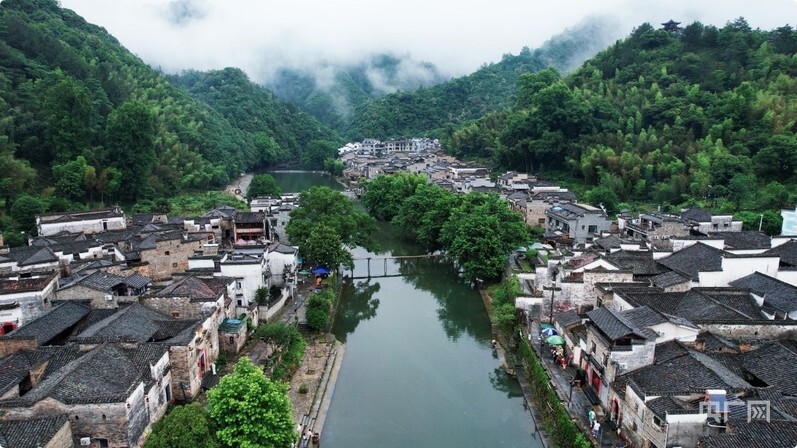
Jingdezhen Yaoli Gaibian Jiuzhi.
Final Thoughts on Your Trip
As you wrap up your journey through Jingdezhen’s Yaoli Gaibian Jiuzhi, let the echoes of history and culture linger in your mind. This ancient town, nestled amongst verdant mountains and flowing rivers, offers a unique glimpse into the art of porcelain making and the resilience of its people. The remnants of Ming and Qing architecture combined with the stories of revolutionary change create a rich tapestry that invites reflection and appreciation.
Yaoli is more than just a destination; it is a living museum of traditions, where every cobblestone path and ancestral hall tells tales of generations past. Whether you are wandering through the bustling Mingqing Commercial Street, standing in reverence at the Cheng Clan Ancestral Hall, or contemplating the significance of the Hongyi Shrine, you will find that each moment spent here deepens your connection to this remarkable place.
Take with you the spirit of Yaoli—a place where art, history, and nature converge harmoniously. Let it inspire your own journey, reminding you of the beauty of cultural heritage and the importance of preserving it for future generations. In a world that often moves too quickly, may your time in Yaoli encourage you to pause, reflect, and find joy in the stories that shape our lives.
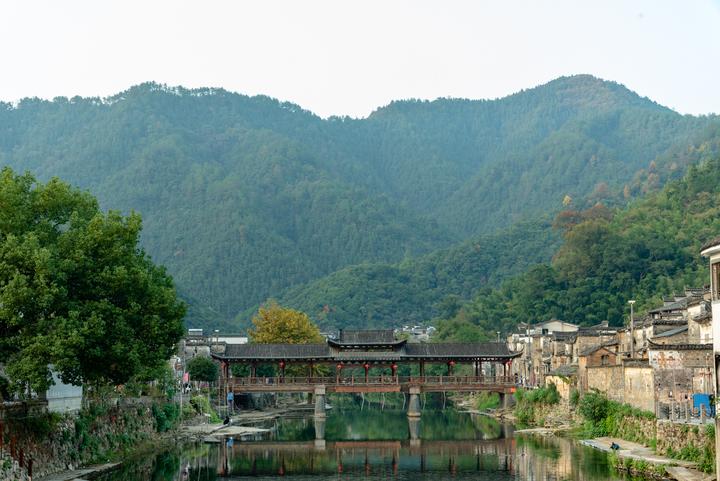
Jingdezhen Yaoli Gaibian Jiuzhi.
